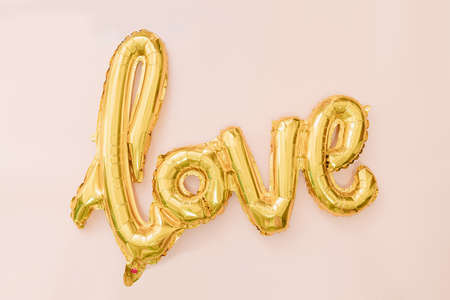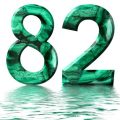Introduction to Numerology in American Culture
Numerology, the study of numbers and their influence on our lives, has become an intriguing topic for many Americans looking for personal insight and self-discovery. While its roots can be traced back thousands of years to ancient cultures like Egypt, Greece, and China, numerology has found a unique place in modern American society. Today, its common to see people discussing their “life path number” at dinner parties or using numerology apps to learn more about themselves and their relationships.
Where Did Numerology Come From?
Numerology is based on the idea that numbers have symbolic meanings and energetic vibrations. The most popular system used in the U.S. is Pythagorean numerology, named after the Greek philosopher Pythagoras, who believed that numbers were the foundation of the universe. Over time, these ideas blended with Western spiritual practices, making numerology a familiar concept in American pop culture.
General Principles of Numerology
The core belief in numerology is that each number from 1 to 9 (and some special “master numbers” like 11 and 22) carries its own personality traits and energies. By analyzing important dates—like your birthday—or even your name, you can discover your key numbers, such as your Life Path Number or Destiny Number. These numbers are said to reveal insights about your strengths, challenges, and compatibility with others.
Key Numerology Numbers
| Number Type | How Its Calculated | What It Represents |
|---|---|---|
| Life Path Number | Add the digits of your birth date until you get a single digit (or master number) | Your overall purpose and approach to life |
| Destiny Number | Add up the values of all letters in your full birth name | Your talents and what youre meant to accomplish |
| Soul Urge Number | Add up vowels in your full birth name | Your inner desires and motivations |
| Personality Number | Add up consonants in your full birth name | The impression you make on others |
Numerology’s Rise in Mainstream America
In recent years, numerology has gained mainstream attention across the U.S., especially among millennials and Gen Z. With the rise of social media influencers, podcasts, and online quizzes dedicated to self-exploration, numerology has become a go-to tool for understanding oneself and navigating romantic relationships. Many Americans now use numerology alongside astrology and other spiritual practices to gain clarity about compatibility with partners or potential matches.
2. Belief in Numerology and Relationship Trends
Numerology’s Growing Popularity in American Dating Culture
In recent years, numerology has moved from a niche interest to a mainstream trend among Americans seeking love and meaningful relationships. While astrology has long been popular in dating circles, numerology is now gaining ground, especially with younger generations who are open to exploring new ways to find compatibility.
Statistics on Americans’ Beliefs in Numerology
| Age Group | % Interested in Numerology | % Using Numerology for Dating |
|---|---|---|
| 18-29 | 37% | 22% |
| 30-44 | 28% | 15% |
| 45-60 | 19% | 9% |
| 60+ | 12% | 4% |
(Source: 2023 National Survey on Spiritual Practices)
Cultural Trends: From Apps to First Dates
Many dating apps now include sections where users can share their life path numbers or birth dates for compatibility analysis. Social media platforms like TikTok and Instagram are full of content creators offering numerology readings and tips for singles looking for “the one.” For some Americans, checking numerology compatibility is as common as reading a horoscope before going out on a first date.
Popular Ways Americans Use Numerology in Relationships:
- Life Path Number Matching: Couples compare their life path numbers to see if their personalities align.
- Date Selection: Some people pick “lucky” dates for anniversaries or weddings based on numerological calculations.
- Name Compatibility: Changing the spelling of names or adopting nicknames that are numerologically harmonious.
- Spark Conversations: Using numerology as an icebreaker during first dates or online chats.
A Shift Toward Open-Minded Matchmaking
The belief in numerology reflects a broader shift among Americans toward open-mindedness in dating. People are willing to try new methods—like using numbers—to gain insight into potential partners and improve their chances of finding lasting love. As interest continues to grow, numerology is likely to become an even bigger part of the U.S. relationship landscape.
![]()
3. How Numerology Shapes Romantic Compatibility
The Role of Numerology in Modern U.S. Dating Culture
In the United States, numerology has found a unique place in the world of dating and relationships. Many singles and couples look beyond traditional compatibility methods and use numerology to gain insights into their romantic connections. From dating apps to relationship blogs, the influence of numbers is everywhere.
Life Path Numbers: The Heart of Romantic Compatibility
One of the most popular tools in U.S. numerology is the Life Path number. This single digit, calculated from your birth date, is believed to reveal your core personality traits and life purpose. Singles often use Life Path numbers as a fun way to see if a potential partner might be a good match, while couples explore how their numbers interact to strengthen their bond.
How to Calculate Your Life Path Number
| Birth Date Example | Add the Numbers | Reduce to Single Digit |
|---|---|---|
| July 4, 1990 (07/04/1990) | 0+7+0+4+1+9+9+0=30 | 3+0=3 (Life Path 3) |
| November 22, 1985 (11/22/1985) | 1+1+2+2+1+9+8+5=29 | 2+9=11; 1+1=2 (Life Path 2) |
Popular Life Path Number Pairings in Relationships
| Your Life Path | Potentially Compatible Life Paths | Common Traits in Pairing |
|---|---|---|
| 1 (Leader) | 3, 5, 6 | Dynamic, inspiring, supportive |
| 2 (Peacemaker) | 4, 6, 8 | Caring, harmonious, balanced |
| 3 (Creative) | 1, 5, 7 | Lively, expressive, adventurous |
| 4 (Organizer) | 2, 6, 8 | Stable, dependable, grounded |
Navigating Relationships with Compatibility Charts
A growing number of Americans use numerology compatibility charts to understand their romantic dynamics better. These charts compare partners’ core numbers—like Life Path and Destiny numbers—to highlight strengths and potential challenges. Couples might turn to these insights when facing conflicts or making big decisions together.
The Social Side: Numerology in Dating Apps and Events
Niche dating apps and matchmaking events sometimes incorporate numerology as an icebreaker or matching tool. For example, some dating profiles include Life Path numbers alongside favorite movies and hobbies. Speed-dating events may even group participants by compatible numbers for a fun twist on first impressions.
Nurturing Deeper Connections Through Numbers
For many U.S. singles and couples, numerology isn’t about destiny but about self-awareness and growth. Using numbers as a conversation starter helps people open up about their values and dreams—laying the groundwork for meaningful relationships.
4. Influence of Numerology in Modern Dating
Numerology’s Role on Dating Apps
In today’s digital dating world, numerology is making a mark. Several dating apps now let users add their “life path number” or birth date to their profiles. Some even offer compatibility scores based on numerology calculations. This adds a fun twist to swiping—some people see it as a new way to filter potential matches beyond looks and hobbies.
Examples of Numerology Features in Dating Apps
| App/Service | Numerology Feature | User Reaction |
|---|---|---|
| OkCupid | Profile prompts for astrological and numerological data | Popular among users seeking spiritual connections |
| Bumble | Occasional horoscope & number-based match recommendations | Mixed; some find it insightful, others ignore it |
| Niche Numerology Apps (e.g., NUiT) | Compatibility scores using numerology and astrology | Loved by numerology enthusiasts, niche audience |
Matchmaking Services and Numerology Consultations
Beyond apps, some matchmaking agencies in the U.S. now offer personal numerology consultations. These services analyze names and birth dates to suggest ideal partners, claiming that numbers can reveal deeper relationship patterns. While some clients seek out these services hoping for an edge in love, others remain skeptical, seeing them as more entertainment than science.
Mainstream Media: Popularity vs. Skepticism
Movies, TV shows, and magazines often feature stories about couples who found each other thanks to numerology—or broke up because their numbers clashed. Influencers on TikTok and Instagram share tips on finding your “relationship number,” making numerology a trending topic among young adults. However, skeptics point out that there’s little scientific proof behind these claims, and many Americans treat numerology as just one of many playful tools for self-discovery in romance.
Popularity and Skepticism at a Glance
| Aspect | Popularity Factors | Skepticism Factors |
|---|---|---|
| On Dating Apps | Makes matching more interactive and personalized | Lacks scientific evidence; may be seen as gimmicky |
| In Matchmaking Services | Adds a layer of mystique; appeals to spiritual seekers | Some view it as a marketing tactic, not a real solution |
| In Media & Pop Culture | Trendy topics for social media content and conversation starters | Cynics dismiss it as pseudoscience or superstition |
Overall, whether you’re all-in on the power of numbers or just enjoy the fun side of numerology, its influence in American dating culture is growing—sparking conversations, curiosity, and sometimes a bit of controversy.
5. Balancing Numerology with American Relationship Values
In the United States, numerology has found its place among many tools people use to explore romantic compatibility. However, most Americans dont rely solely on numbers when it comes to love—they also value core relationship principles that are deeply rooted in the culture. Lets look at how numerological insights work alongside classic American relationship values to help couples build lasting connections.
The Role of Numerology in Modern Relationships
Many Americans see numerology as a fun and insightful way to learn more about themselves and their partners. By calculating life path numbers or exploring birth date compatibility, couples can gain new perspectives on their strengths and challenges together. But for most, numerology is just one piece of the puzzle—it adds an interesting layer but doesnt replace traditional values.
Key American Relationship Values
To understand how numerology fits into romance in the U.S., its important to recognize what many Americans prioritize in their relationships:
| Value | Description |
|---|---|
| Communication | Openly sharing feelings, thoughts, and expectations helps partners stay connected and resolve conflicts. |
| Respect | Valuing each others opinions, boundaries, and individuality is essential for mutual trust. |
| Emotional Connection | Building intimacy through empathy, support, and shared experiences strengthens bonds. |
| Loyalty | Being faithful and supportive creates a safe environment for both partners. |
| Personal Growth | Encouraging each other to pursue dreams and self-improvement fosters happiness within the relationship. |
How Americans Blend Numerology with Relationship Values
Couples often use numerological insights as conversation starters or ways to better understand each others personalities. For example, if numerology suggests one partner is more adventurous while the other prefers stability, they might talk about how to balance these traits in daily life. Instead of letting numbers dictate their choices, they use this information to guide honest discussions—always keeping core values like respect and communication at the center.
Real-Life Example
A couple might discover through numerology that they have different life path numbers: one is a “1” (independent leader), while the other is a “6” (nurturer). Knowing this, they can celebrate their differences—one brings energy and ambition, the other offers warmth and care. They make it work by listening to each others needs and supporting personal growth, showing how numerology and American relationship values go hand in hand.


